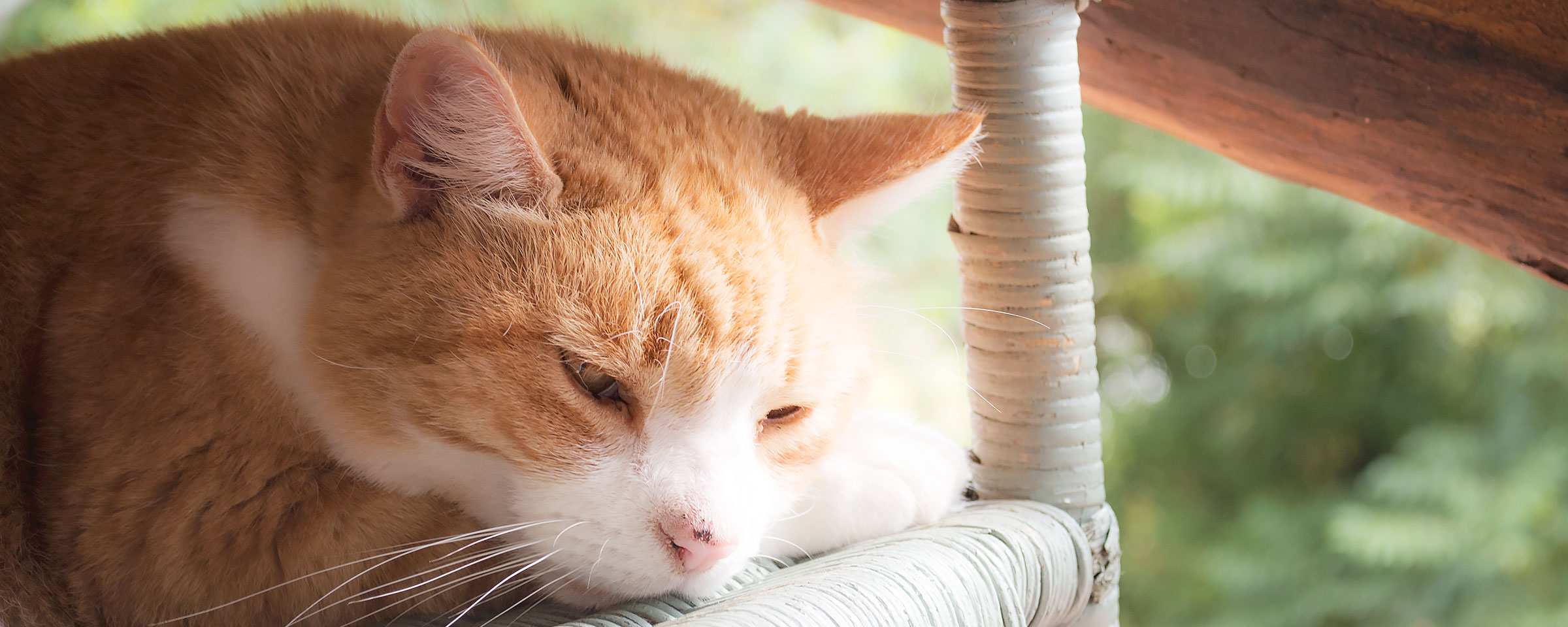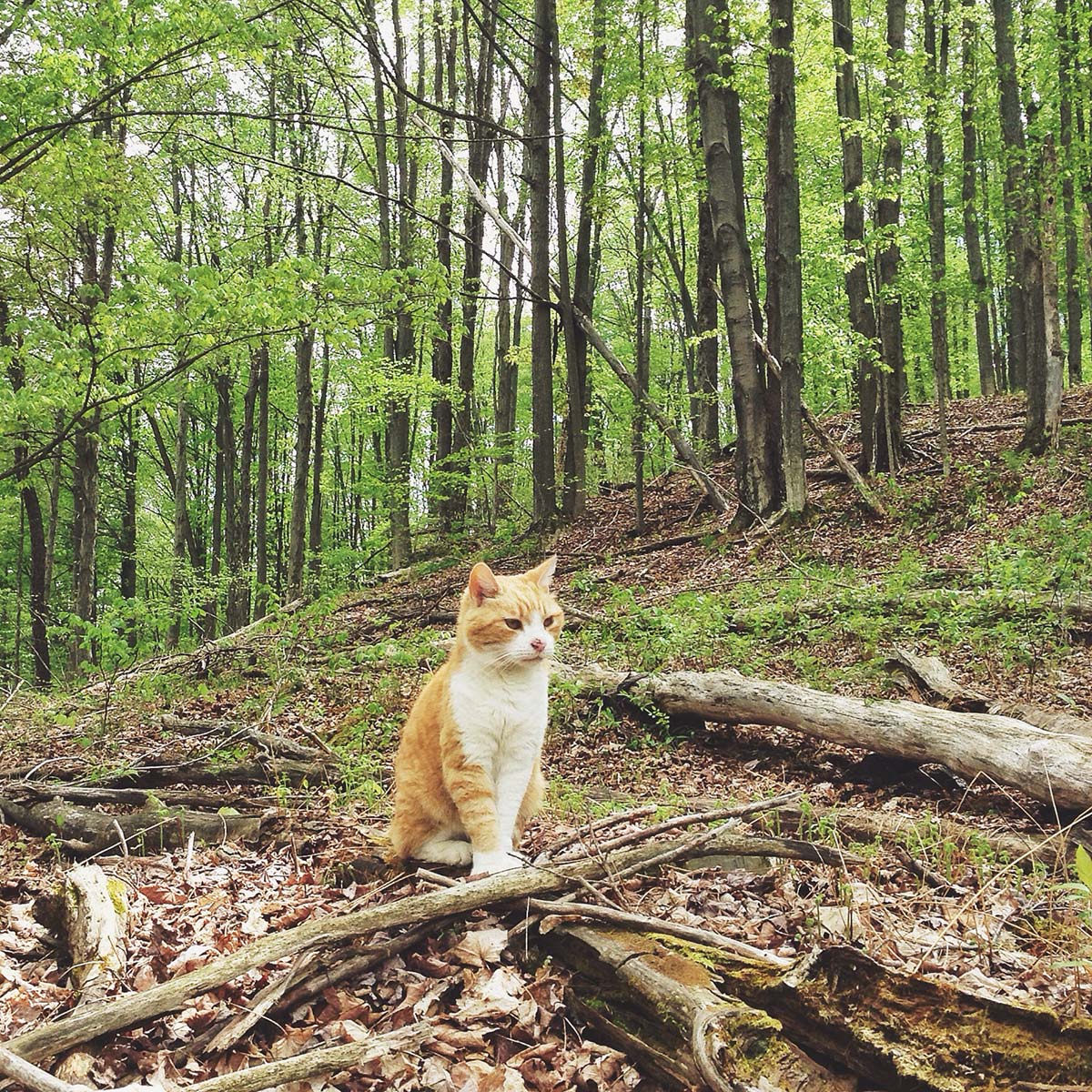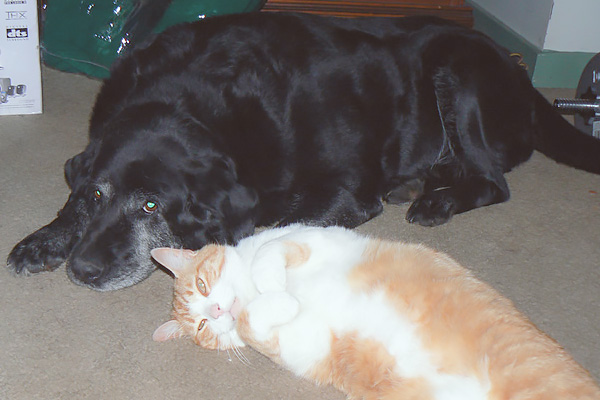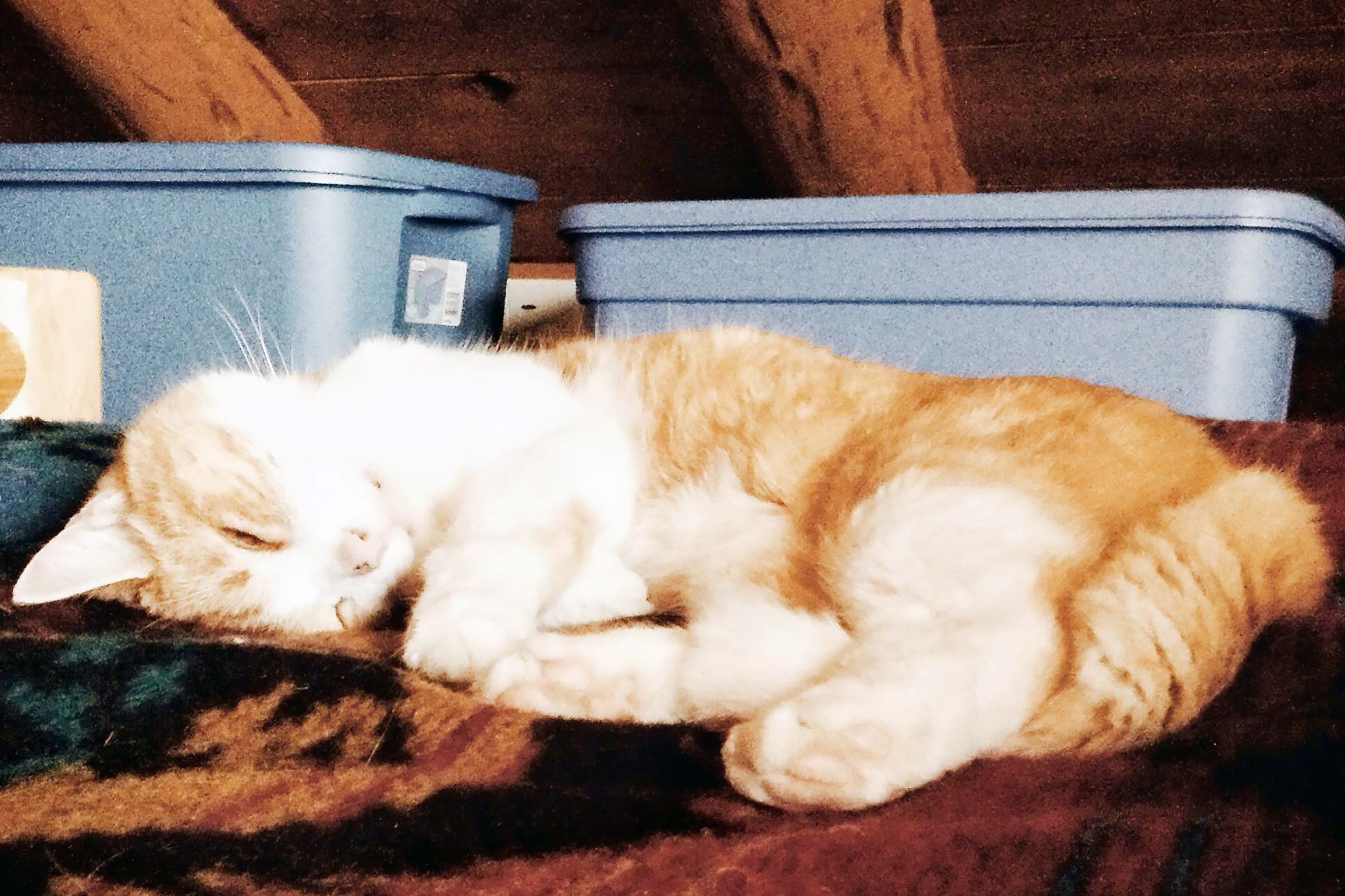

Kitty’s real name was Homer, but nobody called him that. I picked out the name when I was 11 or 12 years old and thought naming a tiny, newborn kitten after a Simpson’s character was a good idea. It wasn’t, and isn’t, and luckily the name didn’t stick. Everyone just called him Kitty. Occasionally my mom would call him Kitty Boy, as in, “where’s my kitty boy?”.
Kitty died three days ago. The vet said he had an impacted tooth, kidney failure, and a mass in his stomach that was likely cancerous. None of these things are uncommon in a cat who’s pushing 17 years. He was old. He’d beaten the average life expectancy of an indoor cat by about three years. That’s an even more impressive feat because Kitty was an “indoor cat” only in the barest of senses.
Most indoor cats are insulated against the dangers of the outside world. Kitty was not. He could be in the house whenever he wanted, but he spent most of the time prowling and patrolling the 80 acres of land that my parents own.
He was a murderer of wildlife. Birds, mice, squirrels, moles, and even rabbits were regularly brought home. What was left of their insides could be found on the doorstep after he finished eating their flesh and bones.
Kitty was in fights all the time. He’d return from a night out with bloody scratches and patches of fur missing. He sported a scabby scar-thing on his nose that was re-opened with such frequency that it never fully healed. There was an implication that whatever Kitty had fought, if he didn’t drag it home and eat its corpse, then it must have been big.
That didn’t phase Kitty because in his own mind, he was big.

Like a lot of cats, he was never aware of his true size. He carried himself like a lion, king of the land, incredulous that anything would dare challenge a battle-tested war cat. With felines, domestication shrinks their bodies but never their self-image.
The weirdest part was that Kitty’s ego worked. He was fierce. Dogs feared him, even dogs that could snap him in half without breaking a pant. What’s more, they didn’t just fear him but often wanted his approval and friendship. He never gave it. Kitty had a lot of disdain to spread around, but no creature received it more than dogs. Dogs, so bourgeois and servile with their begging and their fetching and their neediness. Kitty had no time for it.
Well, that’s not entirely true. There was one dog Kitty had time for: Amos. Amos was our dog when Kitty was born and he’s the only dog Kitty ever loved. They had one of those special interspecies friendships that humans find unbearably cute. But when Amos passed, Kitty was alone. Any love of dogs he had, died with Amos.

Unlike a lot of cats, Kitty didn’t feel contempt for people. He loved his humans. Don’t confuse that for obedience, though. Kitty followed the rules he wanted to follow. He was house trained and would meow at the door to be let outside when necessary. He stayed off the furniture and tables and didn’t scratch them to ribbons. But as he got older, the rules became more… suggestions. The counter was fair game if food was up there. By the end, he barely even attempted to conceal his trespasses.
As much as he did like to cuddle and sleep with humans, he had a hard time gauging their pain thresholds. Love mauling and kneading weren’t tempered with an understanding of fragile human skin. And moving around the house at night meant your feet were considered “in play.” Sneak attacks were his specialty.

In his old age, he became more tender, maybe even a little cuter. He was more vocal, walking around the house meowing at no one like an old man talking to himself. He still terrorized small woodland creatures, but he slowed down. He got in less fights.
And eventually, Kitty died.
He died at the veterinarian’s, overnight, in a cage. He was probably scared, stressed, and alone, away from his home and his people and everything he’d known for 17 years. I don’t want to consider even the tiniest possibility that he felt abandoned during his last hours of life. I can’t help but cry at the image of him lying in a cage, feeling lost and confused because his humans left him to die.
If only he had held on until my mom returned to the vet. If only he could have been brought back to die in peace at his home.
Humans always seek understanding when they lose something they love. We try to find some lessons we learned, some meaning in our experience of life and death. But I don’t see any meaning in Kitty’s death. I feel angry and sad about the way he died. And I feel happy and grateful for the life he had. It was long and good.
But not long enough. Life is the most precious resource in the universe. It’s precious because it’s scarce, because there is never enough of it.
Kitty’s 17 years were all the years he’ll ever have, and all the years we’ll ever have with him. There is, after all, no cat heaven. And even if there was, I suspect it would be unfairly segregated from dog heaven, which is something Kitty and Amos would not abide.
Published on August 16, 2014
Cover image: Marcus Root